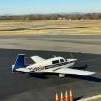Pilot Error is 85%
-
Members Online
- graham28105
- DCarlton
- EricJ
- David-M20R
- Max Clark
- Ibra
- KSMooniac
- Ethan
- Hank
- Gary0747
- mooneyfun
- Ragsf15e
- buddy
- varlajo
- TCC
- Lois
- 201er
- Igor_U
- Rick Junkin
- Echo
- pirate
- 1980Mooney
- hubcap
- Jim F
- Mooney in Oz
- 201Mooniac
- Dammit Bill
- midlifeflyer
- Danb
- PeterRus
- Grant_Waite
- kortopates
- ajudson
- takair
- Stubby
- N201MKTurbo
- Boilermonkey
- ragedracer1977
- ElkoRandy20J
- Greg Ellis
- YeloSub


Recommended Posts
Join the conversation
You can post now and register later. If you have an account, sign in now to post with your account.